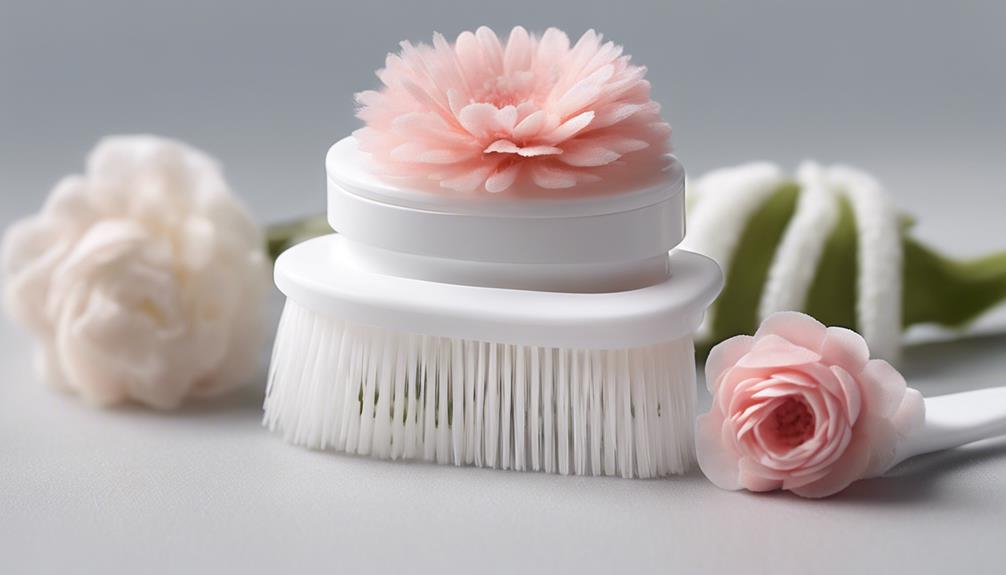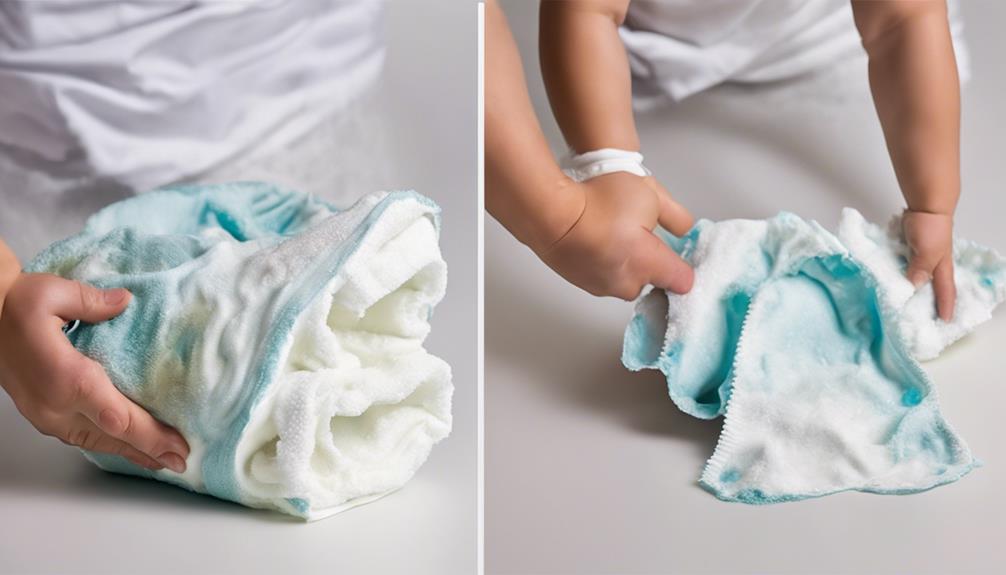In the complex process of taking care of a newborn, consider this: the tiny mouth of your precious little one, a sensitive area that needs gentle and cautious care. But where does one begin?
Our guide on Gentle Newborn Mouth Care lays out practical steps to make certain your infant's oral health is nurtured from the start. From soothing techniques to proper cleaning methods, we have you covered.
Stay tuned to discover the key to setting your baby on the path to a lifetime of healthy smiles.
Key Takeaways
- Start early for good oral habits
- Use soft tools and water only
- Clean daily after feedings
- Address teething discomfort gently
Importance of Newborn Oral Care
Maintaining proper oral care for a newborn is important for setting the foundation of good oral hygiene habits early on in life. By starting early, we can help prevent tooth decay and gum disease down the road. Cleaning a newborn's mouth not only removes bacteria and milk residue but also helps them become comfortable with the process as they grow. This familiarity can make oral care a natural part of their routine, promoting their overall health and well-being.
Newborn oral care isn't just about the immediate cleanliness of their mouths; it's about instilling habits that will benefit them throughout their lives. As caregivers, we play an important role in ensuring that our little ones grow up with a healthy smile. Taking the time to care for their mouths now can lead to a lifetime of good oral health. Let's embrace this opportunity to set our newborns on the path to a bright and healthy dental future.
Tools for Gentle Mouth Cleaning

When caring for a newborn's mouth, utilizing soft, clean gauze or a gentle baby toothbrush is essential for ensuring proper oral hygiene. It's important to remember that newborns should only have their mouths cleaned with water to prevent any harm.
Here are some tips for selecting the right tools for gentle mouth cleaning:
- Use a soft baby toothbrush or clean gauze: These tools are gentle on a newborn's delicate mouth.
- Stick to water only: Avoid using toothpaste, as newborns don't need it for oral care.
- Make sure tools are sterilized: Keeping tools clean is vital to prevent any unwanted infections.
- Choose tools designed for infants: Using tools specifically made for newborns helps avoid any accidental injuries.
- Regular cleaning for oral health: Gentle and consistent mouth cleaning can go a long way in preventing oral health issues in infants.
Step-by-Step Mouth Cleaning Technique
To guarantee proper oral hygiene for your newborn, let's now discuss the step-by-step mouth cleaning technique, starting with gently wiping your baby's gums after feedings using a soft, damp cloth or gauze. This practice helps remove bacteria and prevents any buildup that may occur in your baby's mouth. By cleaning the gums regularly, you establish good oral hygiene habits early on, reducing the risk of potential oral health issues. Until your baby's teeth start emerging, refrain from using toothpaste or toothbrushes to avoid causing any irritation or abrasions.
Regularly cleaning your newborn's mouth not only keeps it clean but also helps protect their mouth from harmful bacteria, promoting overall oral health right from the start. Making this simple routine a part of your baby's care regimen can go a long way in ensuring their oral hygiene. Remember, a clean mouth leads to a healthier smile as your baby grows and develops.
Frequency of Newborn Mouth Care
Daily care for your newborn's mouth is critical to guarantee excellent oral hygiene. Establishing a routine for mouth care can help prevent oral health issues in the future. Here are some key points to ponder when thinking about the frequency of newborn mouth care:
- Consistency is Key: Performing mouth care for your newborn daily is essential.
- After Feedings: Cleaning your newborn's mouth after feedings can prevent bacteria buildup.
- Gentle Approach: Use a soft cloth or gauze to gently wipe the gums.
- Early Start: Starting mouth care early helps your baby get accustomed to the routine.
- Long-term Benefits: Regular mouth care for newborns can contribute to better oral health as they grow.
Tips for Soothing a Fussy Baby
In times of distress, soothing a fussy baby can be a challenging yet rewarding experience for caregivers. When your little one is experiencing teething discomfort, there are gentle ways to help soothe their gums. You can try massaging your infant's gums with a clean finger to provide relief. Offering a chilled teething ring or a cool, damp washcloth for them to chew on can also help alleviate their discomfort. After feedings, using gentle, circular motions with a clean, damp cloth to wipe your baby's mouth and gums can keep them clean and comfortable.
| Tip | Description |
|---|---|
| Massage Gums with Clean Finger | Gently massage your baby's gums with a clean finger to provide relief from teething discomfort. |
| Offer Chilled Teething Ring | Provide a clean, chilled teething ring or a cool, damp washcloth for your baby to chew on to soothe their gums. |
| Use Circular Motions with Cloth | Use gentle, circular motions with a clean, damp cloth to wipe your baby's mouth and gums after feedings. |
Frequently Asked Questions
How to Do Oral Care on a Newborn?
We gently wipe our newborn's gums with a soft, damp cloth after feedings to keep their mouth clean. Avoid toothpaste or a toothbrush until their first tooth appears. Regular oral care promotes good habits for a healthy mouth.
When Should I Start Cleaning My Newborn's Mouth?
We should start cleaning our newborn's mouth even before their first tooth appears. Wiping their gums with a soft, damp cloth after feedings can help keep their mouth healthy. It's important to establish a routine early on for good oral hygiene.
What Are Three Guidelines for Proper Dental Care in Babies?
When caring for babies' dental health, remember to start early, use a soft brush with water once teeth appear, and focus on all tooth surfaces. Regularly replacing the toothbrush guarantees effective cleaning and promotes oral hygiene.
What Is the Oral Hygiene of a Newborn?
Maintaining a newborn's oral hygiene involves gently wiping their gums with a soft, damp cloth after feedings. This helps prevent infections and prepares for tooth eruption. Starting early establishes good habits and familiarizes babies with mouth cleaning.
Conclusion
As we gently care for our newborn's mouth, we're laying the foundation for a lifetime of healthy oral habits.
By following these simple steps and tools, we can guarantee our little one's smile stays bright and cavity-free.
So, let's continue to prioritize our baby's oral health, knowing that our efforts now will pay off in the long run.
Together, we can give our precious babies the gift of a beautiful and healthy smile.









